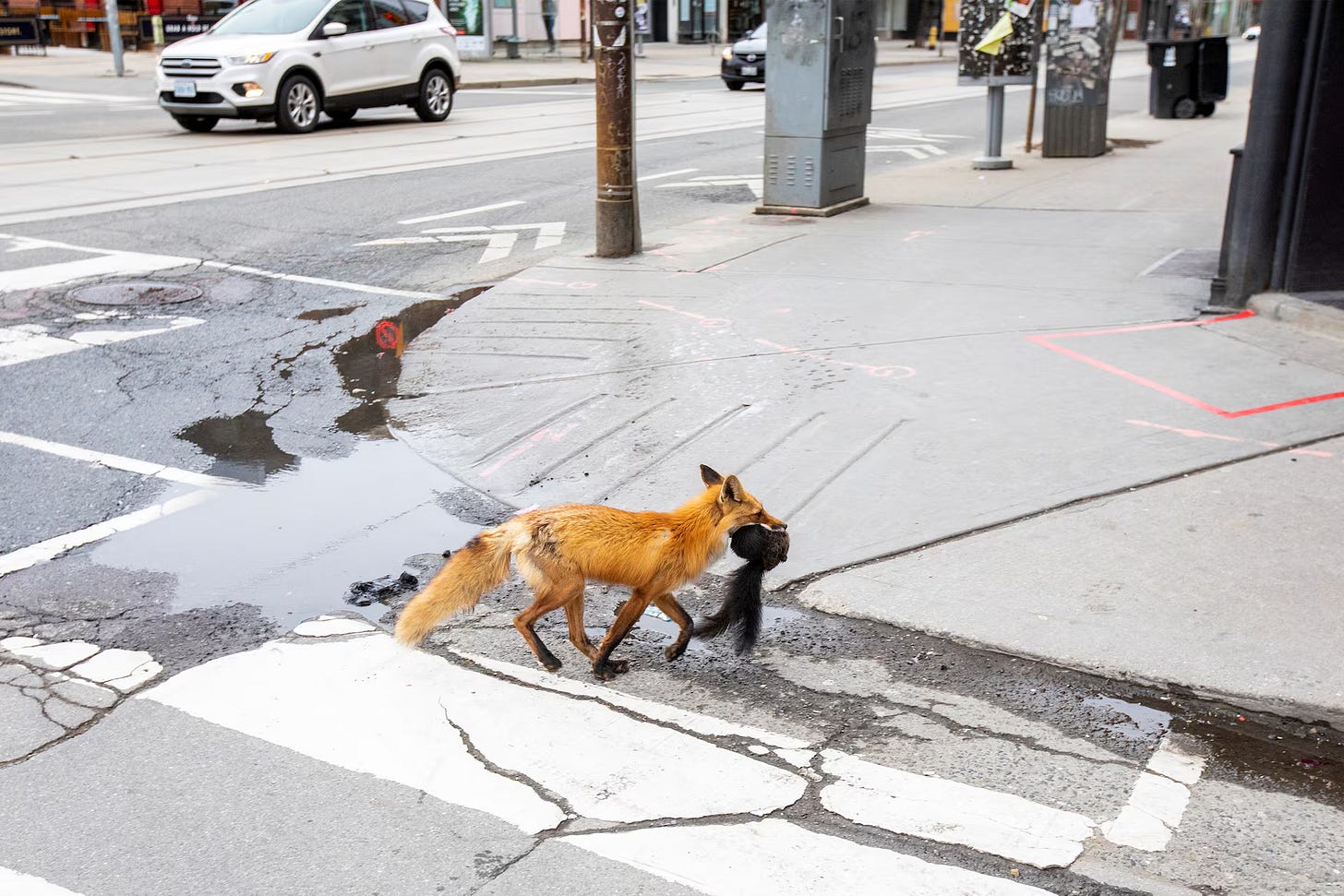Memory Hole
We forget, because remembering what we're fighting for is painful.
Arguing with one roommate who insisted this would all only last two weeks.
Going to the grocery store for the first time, in shitty homemade masks, attempting to stay six feet away from people. There was still toilet paper there, phew.
Sitting in my bedroom in New Orleans, at my desk, staring at my laptop. I tried to trade stocks for the first time. I was not good at it. Anything for dopamine.
Attempting to go on a two-hour walk in 100-degree Louisiana heat and nearly passing out. I saw a bunch of lizards.
Texting someone in New York I’d become infatuated with not because they were good for me but because they were the ultimate distraction.
Arguing with the other roommate about literally anything for no reason whatsoever.
It’s hard for me to remember anything else. I eventually moved back to New York. Life went, kind of, back to normal.
Except a few images, even though they were on a computer screen, more than all the bad ones, more than the phone calls from New York about the bodies in trucks, have stuck in my brain: wild boar roaming the streets of a Spanish city; monkeys in India; deer all over; a sea lion in Argentina.
Nature is healing, we said.
Usually, when we talk about “memory holing” something, the something is bad. We’re using the term as it was originally used, in George Orwell’s 1984, in which government functionaries would toss any document perceived as potentially damaging to the totalitarian state down “memory holes”—chutes in an office building that whisked away paper to a giant furnace to be destroyed.
And to be sure, we do memory hole lots of bad things these days: people have argued that Trump has successfully memory-holed the January 6th riot at the Capitol; people have argued that we’ve collectively memory-holed the pandemic and the mass death it caused because it was so traumatic.
This kind of memory holing is a useful tool—it enables politicians and the rich to get away with mass violence. If the population has the memory of a goldfish, then the powerful can do as they please, help us forget, and rinse and repeat.
That’s why the Trump administration and conservatives are so concerned about control of the mainstream media—attempting to kick Jimmy Kimmel off the air, ensuring right-wing control of CBS, buying up newspapers and social media platforms: it’s not just about managing the narrative, it’s about managing history. If, a few years from now, people want to determine how they feel about a certain politician, searching the internet to develop an accurate picture of what they’ve done or positions they’ve taken might be hard. Their actions will have been memory holed.
But…the animals. Such a powerful image, to me at least. To me, at least, a sign of a better world. More than that: a sign that the better world was already there; that it wouldn’t take very much for it to be brought to fruition—less a matter of creation, more a matter of scraping off the gunk on top to reveal the beautiful underneath.
While the erasure of our collective memory of negative things is certainly bad, I think we don’t think enough about the memory holing of positive things. It is one thing to be forced to forget what you were fighting against, but it is even more powerfully dangerous to be forced to forget what you were, and could and should still be, fighting for.
There are so many things we’ve painted over. So much beauty we’ve forgotten about in the last few years. During the peak of the Covid lockdowns, animals were found to have enjoyed greater freedom than they had in decades. In areas in which lockdowns were most strict, researchers found that animals’ movement over a 10-day period grew by 73 percent. “Animals were able to go about their business without having to worry about where the humans were,” Marlee Tucker told the New York Times.
It wasn’t just the animals, of course. We, too, began to envision a freer world than the one we’d grown accustomed to. Millions protested against police violence and racism. At these actions, the sense of freedom came less from the inherent camaraderie of marching with thousands of comrades, and more from a recognition that the rules we’d internalized about how the world worked might no longer apply. Highways stopped being sites of (in)efficient transportation for the benefit of capital, and instead became sites of demonstration and catharsis. Many friends challenged the idea of private property itself: each broken window not only a result of their anger, but a symbol of what a new world less beholden to capital might look like. Even the $600 unemployment checks the government began depositing in our accounts became a sign of better things to come; the possibility of a government that actually cared. I remember when I first got back to New York City and the vaccines first became available, going into a cavernous middle school gym in Bushwick where an army of nurses injected people by the hundreds. I felt, dare I say, proud of my country, or at least my city. This is what the world might look like if we tried just a little tiny bit.
Covid was (and is) horrible, yes, but it was also a turpentine, peeling away the layers of normal awfulness we’d grown so accustomed to. And what emerged underneath, it seemed, was compassion for humanity.


